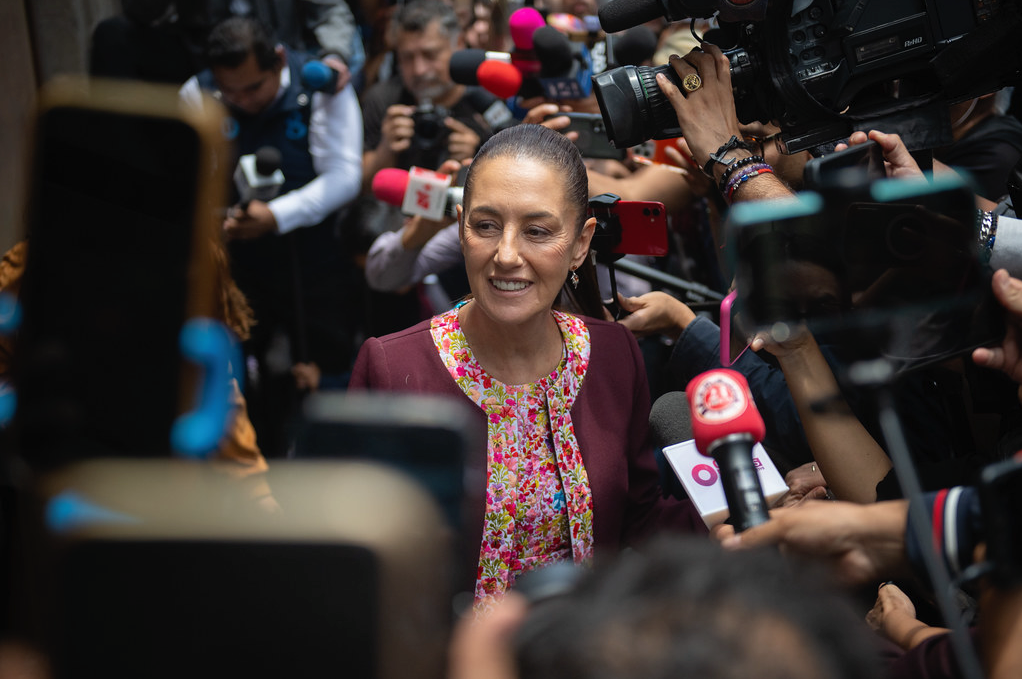The last official day of Andrés Manuel López Obrador’s presidency and the first day of Claudia Sheinbaum Pardo’s administration have arrived—a routine transition in democracies, but complicated in flawed democracies.
The transfer of power took place with all the pomp at the Chamber of Deputies. Present were members of the three branches of government, governors, and special guests who witnessed a ceremony that, during the era of the hegemonic PRI in Mexico, clearly echoed the maxim of King Charles VII: “The king is dead, long live the king!”
However, in the era of the so-called Fourth Transformation, this is a political mirage. Today, the novelty is that “the one who leaves, doesn’t actually leave,” or, in words rooted in Mexico’s history, we are witnessing the inauguration of a new attempt at a Maximato, that undemocratic practice initiated by President Plutarco Elías Calles, which involved imposing and controlling presidential successors until it was ended by President Lázaro Cárdenas del Río, who broke away and sent the so-called “supreme leader” into exile.
This is a pattern that other presidents have tried to establish, but all with poor results, as was the case with Luis Echeverría and José López Portillo. López Portillo, following Cárdenas’s example, was sent to the other side of the world as ambassador to the Fiji Islands.
It also happened with Carlos Salinas de Gortari, who, following the assassination of Luis Donaldo Colosio, appointed none other than his Secretary of Public Education, economist Ernesto Zedillo Ponce de León, as the PRI’s candidate. Once in office, Zedillo ordered an investigation against a brother of the former president for alleged ties to a faction of organized crime, leading to his imprisonment. Salinas had to move to Ireland for the entirety of Zedillo’s presidency.
No one has attempted it since, and the prevailing practice, which continues today, involves ensuring impunity for any crimes committed by the outgoing president and/or their family members or, worse, avoiding political persecution in exchange for favors that facilitate a peaceful and orderly transition, as López Obrador negotiated with Enrique Peña Nieto, who now enjoys a golden exile in Spain.
However, in the 2024 succession process, the transition comes with additional elements. López Obrador has managed to surround Mexico’s first female president with restrictions. He has appointed most of her cabinet—as ministries are called in Mexico—the majority of deputies and senators that he personally selected, as well as governors and candidates for state governments. Today, Morena and its allies (PT and PVEM) control 24 of the 32 states and hundreds of mayors loyal to their leader. Furthermore, he has imposed the political agenda under the ideological framework of the so-called Fourth Transformation, and his son, who shares his name, is Morena’s organizational secretary. This heir will be in charge of Morena’s future electoral candidates, and media speculation suggests he is a potential presidential candidate for 2030.
On top of that, López Obrador has left behind significant economic commitments and conflicts that Claudia Sheinbaum had no reason to deal with at the beginning of her presidency, such as the “apology” demanded from King Felipe VI of Spain, which was met with diplomatic silence.
Thus, the first female president’s room for maneuver is narrow, reduced to the bare minimum. On top of that, Sheinbaum, a scientist, has limited charisma and delivers a flat speech that fails to inspire, adhering strictly to predefined guidelines. To make a move like those made by former presidents Lázaro Cárdenas and Ernesto Zedillo—who unhesitatingly removed those trying to pull the strings of power behind the throne—would be revolutionary within the “transformation.”
Sheinbaum, therefore, faces a political dilemma that she must resolve: either permanently merge with her political mentor, as she did during the campaign and at her inauguration, or rebel against him and lead a government in her own image, which would lend her time in history the dignity of being Mexico’s first female president.













